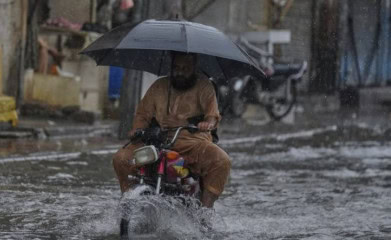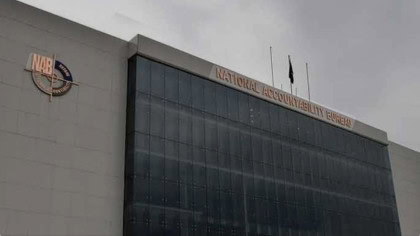Amna Nasir Jamal
SINCE wars have a way of getting out of control, even the Trump administration does not want to acknowledge that it has started one. The United States’ invasion of Iraq on March 19, 2003, known as “Operation Iraqi Freedom,” proved to be a turning point in modern geopolitics, with repercussions that continue to affect world affairs to this day. Many individuals today believe that “we should never have gone to war with Iraq.”
However, the US military used 125 aircraft, including seven B-2 stealth bombers, in a coordinated air operation known as Operation Midnight Hammer, betraying earlier promises to stay out of Middle East conflicts. In violation of international law and the United Nations Charter, particularly Article 2(4) [which prohibits the use of force against the territorial integrity or political independence of any nation] being a permanent member of the UN Security Council, the United States targeted the Fordo uranium enrichment plant as well as facilities in Natanz and Isfahan.
Donald Trump stated in his tweet that “there are many targets left.” The strikes involved the employment of fourteen GBU-57 Massive Ordnance Penetrators, which are 13,000 lb bunker buster bombs that can penetrate deep layers of soil and concrete.
Iran launched retaliation missile strikes against areas of Tel Aviv and Haifa within hours of the US strike. The Fordow nuclear plant in northwest Iran is a fortress, the nation’s most sophisticated and hardened nuclear complex. The factory, the most likely target of a possible American strike, is built beneath a mountain about 300 feet below and is fortified by layers of concrete. It is impenetrable by any bomb other than the GBU-57 Massive Ordnance Penetrator (MOP). The situation is under control, according to the Atomic Energy Organization of Iran (AEOI), which claims that all required steps have been done in the wake of US strikes on Iranian nuclear sites.
The Iranian Parliament has voted in favor of closing the Strait of Hormuz, one of the most important chokepoints for oil flow worldwide, in the wake of U.S. assaults on Iranian nuclear installations on June 21. The Arabian Sea, the Gulf of Oman, and the Persian Gulf are all connected by the narrow Strait of Hormuz.
With two shipping lanes that are two miles wide in either direction, the strait is around 21 miles wide at its narrowest point. Iran has maintained its claim to be able to close the Strait of Hormuz. Iran could try to make the waterway too hazardous for commercial transit, so disrupting international trade, even though the strait cannot be “closed” in the conventional sense, such as closing a road. Amid US strikes on Iranian nuclear facilities, the Iranian parliamentary committee on foreign policy and national security has also demanded that Iran withdraw from the Nuclear Non-Proliferation Treaty (NPT).
The question is why there was such military aggression against Iran’s sovereignty and territorial integrity when Trump wanted the war in Gaza to end. What was the reason for this diplomatic betrayal when Trump cautioned Netanyahu against doing anything that would jeopardize his administration’s nuclear negotiations with Iran? In order to strengthen his self-proclaimed reputation as a peace broker, the US president was “eager to close a deal.” His ambassador, Steve Witkoff, expressed his suspicions, fatigue, and dissatisfaction with Netanyahu and his deceit during his diplomatic visit to the Middle East. After Trump’s unexpected declaration in May that the US would cease attacking the Iran-backed Houthi rebels in Yemen, provided they ceased firing on US cargo ships in the Red Sea, Israel was already “feeling particularly sensitive.” Additionally, the group freed Edan Alexander, a US-Israeli national, the only surviving American hostage after direct talks between the US and Hamas.
Israel started striking Iranian targets when the US and Iran were discussing on Iran’s nuclear program, perhaps using the negotiations as a pretext to surprise Iran. Given that it has joined Israel’s war, Iran is unlikely to view the US as a reliable bargaining partner. With billions of dollars in military aid each year, the United States is Israel’s closest ally. The United States and Iran have maintained tense, mistrustful relations for the past forty years after their diplomatic ties broke off after the Iranian Revolution of 1979.
The Party for Socialism and Liberation asserts that Americans do not desire another unending conflict. The American people desire money to meet their wants. Additionally, demonstrations against the U.S. military’s engagement in Iran are anticipated to continue throughout the week in cities all around the nation, including those in New York and outside the White House on June 22.
Since they believe that now is the time for Muslim states, regional institutions, and civil society organizations to organize coordinated diplomatic and economic responses, the United Arab Emirates (UAE), Kuwait, Bahrain, Oman, Qatar, and the Gulf Cooperation Council (GCC) have all released separate statements expressing concern over the US’s brutal military aggression and diplomatic betrayal.
They have also emphasized the risk of radioactive contamination from attacks on nuclear facilities.22 countries with a majority of Muslims, including those that are at odds with Iran and have diplomatic ties to Israel, have issued warnings that further escalation might spark a wider regional confrontation and destabilize the Middle East.



















